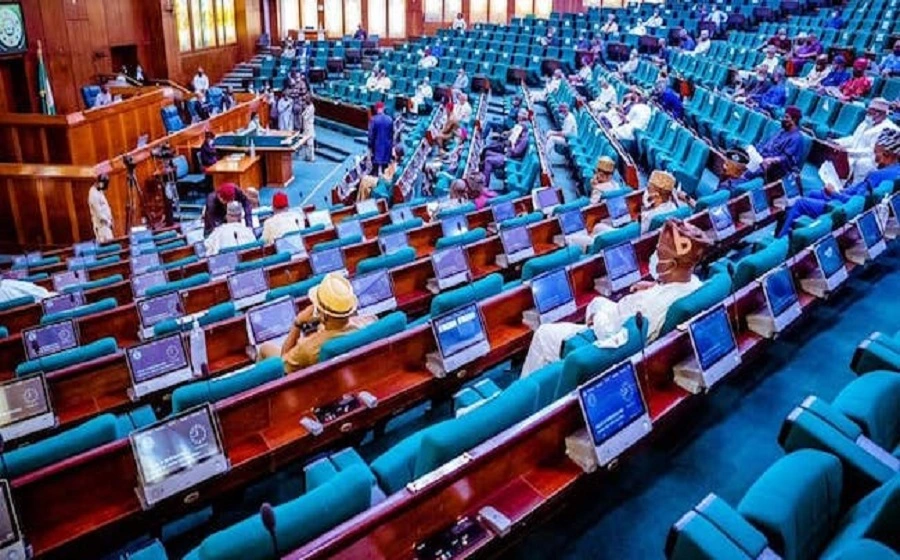Reps fume over NUPRC’s N88bn personnel, overhead expenditure
The joint sitting of the House of Representatives Committee on Finance and the Committee on National Planning has expressed dismay over their discovery of N88 billion as personnel expenditure in 2023 by the Nigeria Upstream Petroleum Regulatory Commission (NUPRC). The committee therefore directed the NUPRC to provide all details of oil production, crude sales and […]

House of Reps
The joint sitting of the House of Representatives Committee on Finance and the Committee on National Planning has expressed dismay over their discovery of N88 billion as personnel expenditure in 2023 by the Nigeria Upstream Petroleum Regulatory Commission (NUPRC).
The committee therefore directed the NUPRC to provide all details of oil production, crude sales and other activities in the Upstream Petroleum Industry in the country.
The directive followed a presentation by the NUPRC Executive Commissioner Economic Regulation & Strategic Planning (ECR&SP), Babajide Oluwole Fasina and some members of its management at the ongoing interactive session with key agencies on the 2025-2027 Medium Term Expenditure Framework (MTEF) and Fiscal Strategy Paper (FSP) on Thursday.
Fasina informed the committee that, NUPRC derived its various revenues from oil royalty, gas royalty, concession rental, gas flat penalty, miscellaneous oil revenues which include fines and levies, signature bonus and renewal of licenses.
- Estate Developer Tasks Govt on Rising Cost of Building Materials
- ‘Let Heaven Fall,’ Wike says no going back on FCT Demolitions
Giving a highlight of the revenue collections he said that, NUPRC got 4% Cost Of Revenue Collection (CORC) for the total revenue collected on behalf of the federal government which he said were credited directly to the Federation Account and FAAC credits the 4% to the Commission.
He said, “The Cost Of Revenue Collection amounted to N114.84 billion in 2023 as against N114.38 billion in 2022. The amount released in 2023 includes N2.82 billion for Capital Expenditure, though N173.77 billion was due as 4% on the Actual Collections of N14.34 Trillion in 2023.
“The Commission also generates revenues internally such as, Registration Fees, Licence Fees, Fines, Recoveries, etc. It generated N1.44 billion in 2023 compared to N30.08 billion in 2022, and this accounts for 1.26% of the total Revenue realized in 2023 and 2.62% in 2022 respectively.”
Fasina however informed the Committee that, the Commission recorded a high expenditure in 2023 compared to 2022 by N11.46 billion which he said was an increase of 10.83%.
He added, “Personnel Cost which has the largest share amounting to N82.35 billion represents 70.19% of the total expenses of N117.33 billion, followed by Overhead Costs of N31.63 billion which accounts for 26.96 billion”.
The NUPRC Executive Commissioner however informed that the Commission’s non-tax remittance dropped from N3.67 billion in 2022 to N1.77 billion in 2023 and an Amorisation and Depreciation of N246.66 million and N1.33 billion respectively.
However, Chairman of the Committee on Finance, Rep. James Abiodun Faleke who presided over the session and members were angered by the Commission’s Personnel and Overhead expenditure as stated by its official as contained in the documents presented before the Committee.
Speaking, Faleke said, “I’m wondering what type of organization you have.You are paying 88 billion as salaries. How many staff do you have? How many staff do you have?
“National Assembly, before the review, they gave us 150 billion in the year. All, Including management. Everybody.Senate, House of Reps, management, everybody.
“So if only your agency is spending 88 billion. That’s why you have so much. So much money.Because of 4% collection. 4% is too much. We need money…you are spending 88 billion on personnel, and you are spending 40 something billion on overhead”.
Despite trying to justify the figure, the Committee rejected the NUPRC’s explanation and demanded a comprehensive records from the Commission as regards its revenues, expenditure and all other activities including exploration activities of Frontier Explorations’ at various Frontier Basins in the country where oil prospecting activities are taking place.
